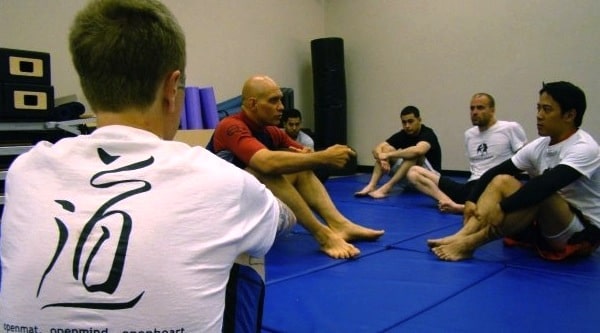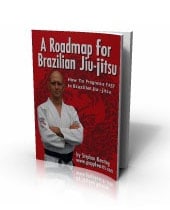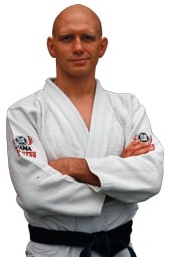
The question I get asked most often goes something like this: “There is a guy at my club (let’s call him ‘Bill’) who bench presses 400 pounds, used to wrestle in college, and has an 18 inch neck. Bill has been doing jiu-jitsu for only a couple of years, but he has already learned how to counter all my attacks. I have been doing jiu-jitsu for twice as long as Bill, and I find it very frustrating when he crushes me. I want to kill Bill, at least on the grappling mat: what do I do?”
I am not going to answer this question right now; instead I am going tackle an even bigger question. This bigger question is “how do I beat anybody”. The way that you beat any opponent is always the same
Another way of saying this is that you want to fight to your strength(s) and against your opponent’s weakness(es).
Let’s first look at physical attributes. It is unlikely that your opponent will be stronger, AND heavier, AND more flexible, AND faster, AND have better endurance, AND have better balance, AND have more fighting spirit, AND have more pain tolerance than you.
At least 95% of the time you will be able to identify at least one physical attribute in which you are superior to your opponent. Let’s say that he can bench press 400 pounds but you are more flexible than him: you need to find a way to make your superior attribute (flexibility) become the deciding factor, and not match him where he is superior (physical strength).
On a technical level there are many different types of grappling styles and games. To beat an opponent it really helps to figure out which style of game he is good at and what style of game you are good at. If he is really skilled at using the open guard, for example, then you want to make sure that you play a different game than trying to pass his open guard. Some examples of other grappling styles and games might include:
- A tight position game
- A flowing speed game
- A floating game
- An explosive, bridging-based game
- A half guard game (or butterfly guard, or closed guard, or spider guard, etc.)
- A footlock-based game
- A game based on collar chokes and armbars
- An endurance-based attrition game
- A gi-entanglement game
- etc.
This whole topic is really summed up best by Genrikh Chepukaitis a chess master, who said: “You need not play well – just help your opponent to play badly.”
So take your strong points (your skills, your strategies and physical advantages) and help your opponent play badly!


